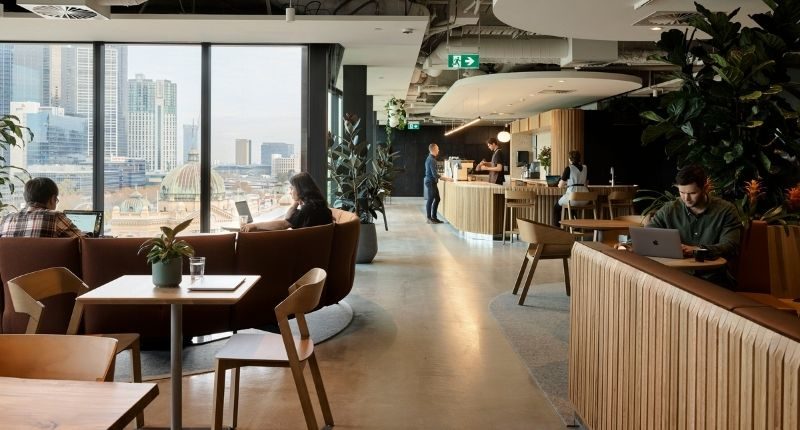- Four out of five workers say they will never go back to traditional full-time work
- The commercial office landlords have an opportunity to adapt
- New research on the future of corporate workplaces has been released
Work is becoming permanently “unshackled” from a physical location according to the freshly released 2022 Liberated Work report.
Published by Australia’s largest privately-owned flexible workspace provider Hub Australian and global independent workplace researchers WORKTECH Academy the research found that four out of five workers say they will never go back to full-time in a traditional office.
More than half of Australia’s corporate employees (57%) be willing to sacrifice a pay rise or promotion to ensure flexibility of work locations in the future and half (53%) would even take a wage cut to have more flexible work hours.
This is according to a survey of 500 corporate Australia employees at some of the country’s largest firms.
The report highlights that hybrid work is not about ‘working from home’, it’s about a culture of care, empathy and wellbeing.
Hub Australia CEO and Founder Brad Krauskopf explained, “…supporting health and wellness are essential to meeting demands of the modern worker.”
“Work has been permanently unshackled from physical spaces since the pandemic and leaders now must consider policies that allow employees to be the judge of how, when and where they work best,” Mr Krauskopf said.
The report found three hybrid working policies, in particular, proved to be the most popular amoung employees. These include flexible work hours, a minimum number of days in the office per week or month and flexible days with a booking system to go into the office.
Mr Krauskopf suggests that offering employees a choice of company workspace could serve as an employee benefit.

What does this mean for commercial real estate?
The Liberated Work Survey found a fifth (19%) of respondents believe the office become obsolete in the next decade, but on the other hand, 21% are not sure that the current hybrid trends will last.
Director of WORKTECH Academy Jeremy Myerson explains that employees still have a need for the office.
“Our research shows there are three major reasons why employees still want to visit an office: collaboration with colleagues, access to technology and improved productivity,”
Jeremy Myerson, Director of WORKTECH
“So while commercial landlords fear office leasing demand will shrink in the face of hybrid work, they can be assured there’s still an important role for the office to play and hybrid work is only the beginning of the what has been dubbed ‘the future of work’.”
The report extrapolated that ultimately, landlords will be forced to provide more commercial offices on flexible terms in a bid to retain relationships with their tenants.
Mr Myerson believes commercial industry leaders now have the chance to adjust.
“The time is now for landlords to plan for how workforces will use and access space, not just in this current COVID environment but also a decade down the road – where creating diverse environments to meet the demands for ‘liberated work’ will be essential.”
What might the new work ecosystem look like?
The report deduced that with workplaces moving away from traditional offices, the flex office market has a bright future. But Mr Krauskopf says we are still learning exactly what that might look like.
“While the role of the traditional office is not dead, what this report shows, is it’s certainly changed to be part of a broader liberated work ecosystem.”
Brad Krauskopf, Hub Australia CEO
“What this work ecosystem will look like is still evolving, as key learnings from the past two years of hybrid work are applied and technology catches up to the new demands of split workforces across virtual and digital environments.
According to Mr Krauskopf, space-as-a-service offerings have seen a rise in demand as workplaces adapt to ways of working. This includes work-from-home models but also coworking spaces, hub-and-spoke arrangements and suburban work hubs.
“It’s why we’ve seen corporate enquiry for Hub Australia sites spike by 60% since the beginning of 2021,” Mr Krauskopf said.








